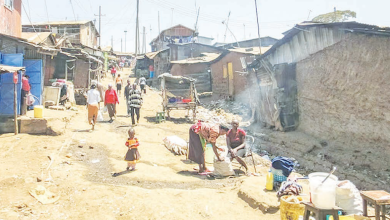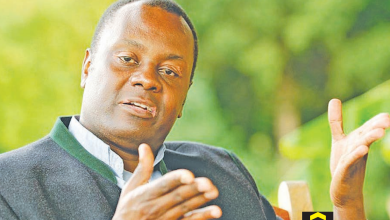Early detection: The lifesaving power of timely Cancer care

MWANZA: CANCER. The word alone can evoke fear. But for two survivors in Mwanza, the diagnosis and timely medical intervention became the start of their healing journey.
Their stories are proof that early detection and treatment can turn a life-threatening condition into one that can be beaten. The key takeaway? Cancer is curable if caught early.
To be precise, let us take the case of Stella Herman from Nyakasa Ward in Ilemela District-Mwanza Region in 2020, at the age of 31, when she noticed blood in her stool.
At first, she thought nothing of it-after all, it did not hurt. For three months, she shrugged off the warning signs, assuming it was something minor.
But after the symptoms persisted, she decided to get tested at Bugando Zonal Referral Hospital in Mwanza. The diagnosis: Stage 2 colorectal cancer.
It was shocking, considering that colorectal cancer is most commonly diagnosed in people over 50, according to the World Health Organization (WHO).
The condition, which ranks as the third most common cancer globally and the second leading cause of cancer-related deaths, is often linked to lifestyle factors such as poor diet, smoking, obesity, and a sedentary lifestyle.
The WHO report highlights that most cases of colorectal cancer are diagnosed in the later stages when treatment becomes more challenging. Early detection, however, drastically increases the chances of recovery.
ALSO READ: Debt, workforce issues hamper SIDO’s operations
For Stella, she was fortunate. Her cancer was detected early, which meant that treatment could begin immediately.
Over the course of her battle, she underwent three surgeries, including the creation of a temporary colostomy, which provides an alternate route for waste elimination. She also went through 30 rounds of radiation and multiple rounds of chemotherapy. But the results were worth it.
Today, Stella is in remission, though her journey is not over. “I’m recovered, but I will need to attend regular check-ups for the next 10 years. That is standard for anyone who has been treated for cancer,” she says. Her message to others: Don’t ignore the warning signs.
Another survivor, Nyanjura Kafwimba, from Kisesa Ward in Magu District, shared her own journey of survival. In 2015, she noticed a lump in her right breast.
Just like Stella, she ignored it for a while because it wasn’t painful. But her husband insisted that she get it checked. When she finally visited Bugando, the diagnosis was breast cancer—Stage 2.
“I was shocked. Who wouldn’t be?” she reflects. “Receiving such a diagnosis was terrifying. But my husband was there for me, every step of the way.”
Despite the intense and prolonged treatment process, Nyanjura is now cancer-free. But she still attends regular follow-up appointments.
However, Nyanjura also spoke candidly about the financial burden of cancer treatment. The costs are high, and without comprehensive health insurance, many patients struggle.
She urged the government to accelerate the implementation of Universal Health Coverage (UHC), which would help cancer patients and others in need of expensive treatments.
Both Stella and Nyanjura’s stories underscore the importance of early diagnosis. Both women initially brushed aside symptoms, but once they sought help, they found out that cancer is much more treatable in its earlier stages. They now encourage others to be proactive about their health. Regular check-ups can save lives.
During the World Cancer Day celebrations at Bugando on February 5th, Stella and Nyanjura publicly vowed to become ambassadors for cancer awareness. They promised to share their stories far and wide to inspire others to act sooner rather than later.
While Tanzania is fortunate to have Bugando Hospital providing cancer treatment in the Lake Zone, the situation is dire. Dr Fabian Massaga, Bugando’s Director General, highlighted the growing number of cancer cases in the country.
According to the latest WHO statistics, there are approximately 45,000 new cancer cases in Tanzania every year, with 29,000 deaths- 60 percent of the diagnosed cases. Dr. Massaga also pointed out that a staggering 80 percent of patients who visit Bugando are diagnosed at advanced stages of cancer, which greatly reduces their chances of survival.
The most common cancers in the Lake Zone include breast, cervical, prostate, and esophageal cancers. Yet, many of these cancers could be caught earlier with improved public awareness and timely screenings.
While the situation is concerning, Dr Massaga commended the Tanzanian government and international partners for their efforts in improving cancer treatment at Bugando. He mentioned that modern medical equipment and chemotherapy drugs are now available, which helps provide better care for cancer patients.
Dr. Massaga also stressed the importance of preventive measures. For example, vaccination against Human Papillomavirus (HPV) is being promoted to protect young girls from developing cervical cancer.
In addition, he encouraged people to avoid risk factors like excessive alcohol consumption, smoking, and unhealthy diets, all of which increase the likelihood of developing cancer.
Elaborating, Dr Heronima Kashaigili, Assistant Head of the Cancer Department at Bugando, expanded on the troubling rise of cancer diagnoses even among newborns. The hospital sees at least 300 children diagnosed with cancer annually.
The most common types of cancer in children include lymphoma, nephroblastoma (a kidney cancer), acute leukemia, retinoblastoma (eye cancer), and brain tumors. While the causes of cancer in children remain largely unknown, research is ongoing worldwide.
Since its inception in 2009, the cancer department at Bugando has grown exponentially. Originally serving just 320 patients, the department now cares for 79,000 people. But despite the growth, more resources are still needed—particularly additional radiation machines and trained medical personnel.
While Bugando’s department is focused on curing cancer, it also provides palliative care for patients with advanced-stage cancers.
This care focuses on relieving pain and improving quality of life for patients who are no longer responsive to treatment. Though palliative care is a vital service, it is still underfunded and requires additional support.
The fight against cancer in Tanzania is far from over. But with continued education, timely screenings, and increased healthcare coverage, cancer is becoming more manageable.
Both Stella and Nyanjura’s experiences show that cancer doesn’t have to be a death sentence early detection and treatment can save lives. Their stories are a powerful reminder that when it comes to cancer, every second counts.





